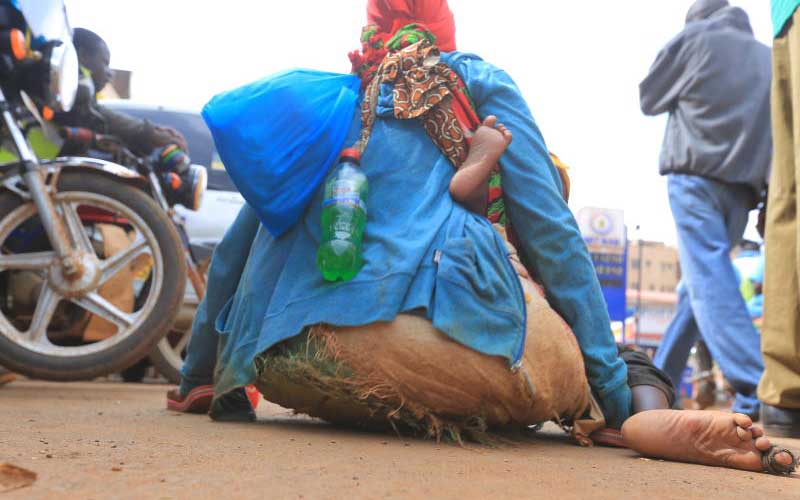×
The Standard e-Paper
Join Thousands Daily

A disabled mother crawls while begging in the streets of Kisii town with her child strapped on her belly and a bottle of sanitiser tied on her headscarf last month. [Sammy Omingo, Standard]
As Kenya continues to combat Covid-19, it is clear that little has been done to accord people with disabilities the guidance and support needed to protect them during the ongoing pandemic, even though many of them are part of the high-risk group.